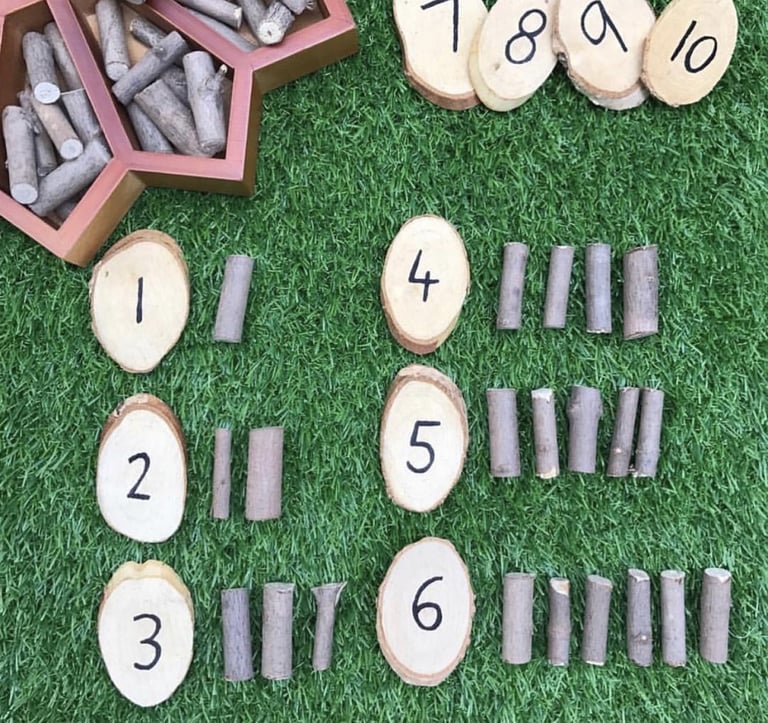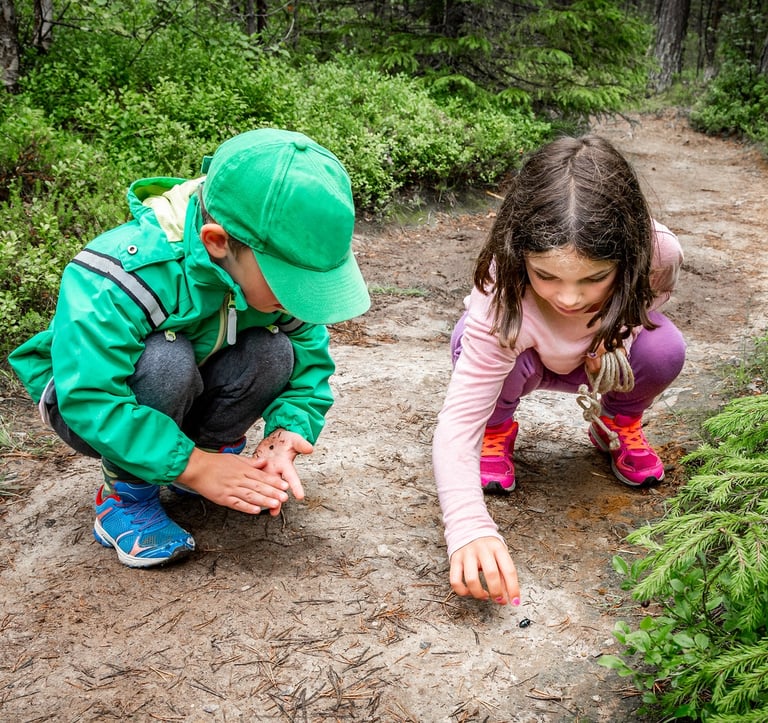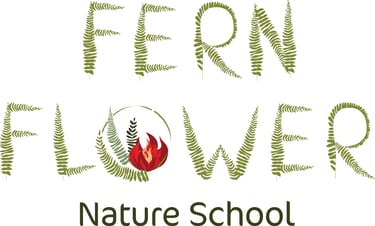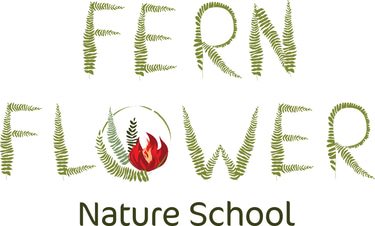
Enrolling your child at Fen Flower - Nature School gifts them much more than a magical child care experience. FFNS has the Early Learning Framework to create a strong foundation for learning today and for success later in life. Nearly 90% of brain growth takes place between ages 1—5, when over one million new neural connections are formed every second. These are the connections that build the foundation of a person’s brain architecture — a foundation upon which all later learning, behaviour, and health depend. This has been shown in over 150 reputable scientific studies, and is the reason why we’ve developed our Early Learning Framework.
The Importance of
Early Childhood Education
Brain Development between ages 1 to 5 is the most critical time
Some of the most dramatic physical changes that occur between ages 1 to 5 are in the brain. During these years, children undergo a period of rapid neural growth called synaptic blooming. The formation of thousands of new connections takes place, and a child’s brain overproduces synapses as it rapidly develops. The more experiences a child has during these ages, and the more they learn, the more of these neural connections take hold. This is followed by a gradual period of selective pruning, where all the extra synapses created in the early years that have not found connections are eliminated.
Since synaptic blooming takes place between ages 1 to 5, it’s an important time to ensure children are learning. There are four key areas of brain development during synaptic blooming, called sensitive periods, and they include expansions in the areas of Language, Numbers, Peer Social Skills, and Emotional Control, which make up each section of the framework for our curriculum.
Children benefit immensely just from being exposed to these subjects, and the amount and quality of experiences that they receive during these sensitive periods sets the foundation for learning that a child builds upon for the rest of their lives.


Sensitives Periods in Early Childhood
(by are)
Language
Language learning starts at birth, as a child’s brain creates the highest number of synapses for language development in their lives between 0 and 5. Quality early learning during this time expands their foundations in reading, writing, comprehension, and articulation. When children are exposed to different tones, sounds, word combinations, vocabulary, and other languages (even different voices speaking the same familiar words), they develop a greater foundation for language and comprehension capabilities.
The foundational reading and writing skills that develop from birth to age five have a clear and consistently strong relationship with later conventional literacy skills. Children’s early phonological awareness—that is, their ability to distinguish among sounds within auditory language—can also predict later literacy achievement.
In general, skilled reading in elementary school and beyond is shaped by early literacy experiences long before a child encounters formal reading instruction. Providing children strong literacy education in the early years leads to better academic outcomes and reading success later in life. The involvement in rich language and literacy experiences creates tremendous opportunities for children.


Peak Ages
0 - 3
Numbers and Math Language
Between ages 2—4, children build their foundation for understanding numbers and math language. Exposure to these concepts helps accelerate more sophisticated math learning in later years. Children are sometimes introduced to abstract mathematical concepts and equations (like 2 + 3 = 5) before they understand the concepts behind these symbols. Being deliberate in the language used to teach math concepts in the early years demystifies math for children and allows them to excel at later stages. By being equipped with a mental model to help them understand these terms, they aren’t intimidated.


Peak Ages
2 - 4
Peer and Social Skills
Between ages 2—4, children benefit greatly from cooperative group and peer play activities. Examples of these include relay races, treasure hunts, puzzles, building block activities, or making up a dance. While developing social competence, as well as learning how to read emotions, make friends, cooperate, and negotiate, can be challenging at any age, social exercises and activities can help kids learn and develop these skills early on. Teamwork, collaboration, and perspective-taking in the early years help build confidence, capabilities, and skills that children carry with them throughout their lives.


Peak Ages
2 - 4
Emotional Control & Emotional Intelligence
Emotional control and Intelligence begin at a very young age, and different emotions emerge at different times. Nurturing connections is important as children learn to understand, manage, and navigate through big feelings like anger, joy, excitement, fear, frustration, and affection. Children also learn to perceive, process, and predict these emotions in others. Evidence suggests that, in the first six months, infants can experience and respond to distress by adopting self-soothing behaviour. Other studies have found that toddlers who develop self-regulation skills in infancy are able to avoid or approach situations depending on their emotional impact.
Arts in early childhood can have social and emotional benefits. Children learn to channel their feelings in productive and creative ways with the right curriculum encouraging self-expression. When kids are actively involved in creative, dramatic and musical arts, they are provided with an outlet to harness and project their emotions in positive, communicative and creative ways. Children also learn to recognize how their peers communicate these emotions in various forms.


Peak Ages
0 - 2
Location
3827 Charlton Drive, Qualicum Beach, BC, Canada, V9K 1Z3
Contacts
fernflowernatureschool@gmail.com
+1-250-299-2054
Subscribe to
our Newsletter


